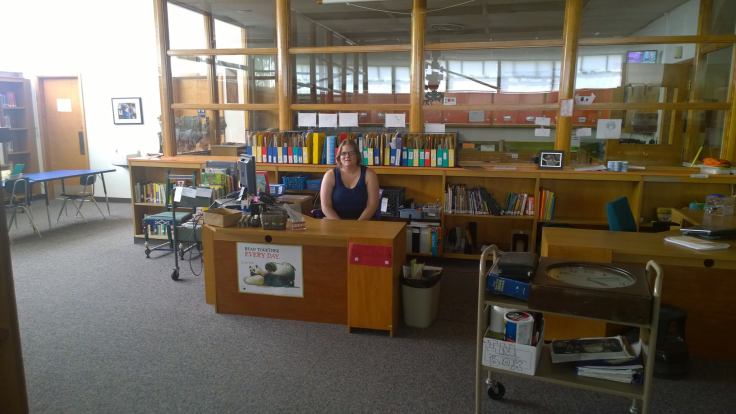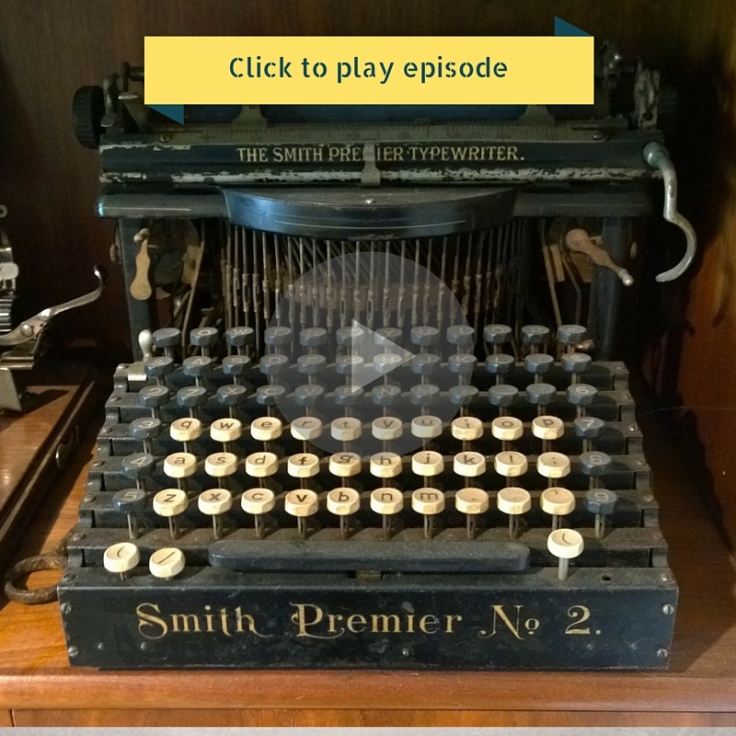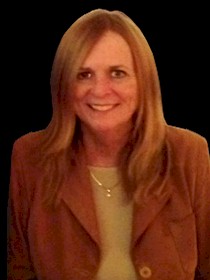Things like this pop up on my social media feeds all the time. Libraries, I am told are an endangered species.
For family reasons, I have not worked in a library in over two years, but I am a certified librarian considering going back to it. Here’s me saying goodbye to the school library that was my home away from home from 2010 to 2014.

What do I like about being a librarian? I actually really like research. I like teaching it, and I like tracking down little information tidbits for others (librarians still spend a huge percentage of their time on research and reference, even in the post-Google era, which surprises people.) I like the connections, making the recommendations, the teaching, and the storytimes. And I really like the books.
See what I did there? Librarians have to emphasize all of what they do. You can’t just talk about reference. You can’t just talk about books. First of all, it would diminish everything the job is, but it is also a marketing strategy. If you’re “just” a roomful of books, or “just” someone who looks up stuff when “everything is on the Internet” (a university librarian friend of mine tells me she tells freshmen who insist they don’t need her that she’ll see them soon and she generally does,) then you are expendable because no one needs that.
I spent a lot of my library career working in small towns, including 2 years on an island, so I can relate to the article. All communities need libraries, but rural communities need them perhaps even more, and are more likely to lose them. In an unincoporated island community without a community center or city hall, that’s what we were. Schools used library space to display student work after art and literature contests. When the inevitable storms knocked the power out, people would gather in the library for the news and to check up on everyone. We did slam poetry, summer reading, book groups, meeting spaces. We did it all.
I’m currently reading Wendy Welch‘s The Little Bookstore of Big Stone Gap, a delightful memoir about the realities of running an independent small-town bookstore. Because who hasn’t wanted to do that? I’ve written before about my local used bookstore owner, currently running the only bookstore in my town. Yes, we have a really wonderful indie bookstore two towns over, but I want my own little bookshop that could, downtown by my favorite breakfast place, to make it. Most of the time, when I’m in there, it’s just the owner and me. She and I chat books while my toddler finds his favorite cushion and reads her anemic board book selection and she knits hats to sell on Etsy to keep the lights on. He doesn’t care that her board book section is anemic. He’s two and wants the same book over and over again anyway. But it’s tough for her. Every time I am in there, I wonder how long she will be around so I can stop by and see her. And buy books.
This was all in my mind as I got in my car and took a road trip to Portland.
Here’s what you have to know about Portland: all those pretty bridges make getting lost remarkably easy, downtown is actually pretty little, skip the Voodoo Donuts line and get a mini Burnside cream from the mini donut food truck one block up (you’re welcome,) and go to the bookstore.
Whenever we’re in Portland, we eat, we walk, and we go to the bookstore. Why do anything else? Powell’s books in Portland is the stuff of legends. It’s actually not a bookstore but a local chain with branches at the airport and around the area and, to the delight of my software engineer husband, an entirely separate store for technical and math books. The flagship store is an entire city block of books: rooms and rooms of new and used books happily sharing shelf space together. Their online store is also amazing and a great alternative to, well, you know. Also, it’s based out of Portland, so no sales tax.
We had this debate yesterday: I’m not sure if Powell’s is my favorite bookstore, but I can tell you there is no bookstore I would claim to love more. Every bookstore has its own character and I can think of far too many “favorite” places to list here, but Powell’s is a mecca for booklovers.
And on the Sunday afternoon in July when we were there the place was PACKED. Long lines, people streaming in and out of the doors, families reading, adults excitedly waving coloring books they found…it was a zoo.
It’s the image I will come back the next time someone tells me no one reads anymore.
So if the librarian in me is a dinosaur, I am among dino friends. We’re out there, fighting the good fight for booklovers (and for real actual research, which is a topic for another time.) I’ve actually thought about leaving the librarian profession because fighting for your existence is exhausting. I was told on my first day at my last job that having a librarian was “a nice luxury.” Not exactly job security.
Some writers, I am told, (although fortunately I don’t know any personally,) find used bookstores and libraries a threat. If people can get your book for free (or buy it used, for which the writer gets nothing,) then they aren’t buying it new and that hurts a writer’s bottom line.
I get that. I do. Real support of writers means buying new books, and I make an effort to buy a new book (from a local bookseller whenever possible,) at least once a month. But if you want to live in the kind of literary culture where people go to your readings, celebrate your releases, discover new authors and genres, and pass the love of reading on to their children, you need libraries and used bookstores. So we’re just going to keep plodding along like the dinosaurs we are. And if you haven’t been in for awhile, you really should stop by. You never know what you’ll find.
Happy reading,
Kris





